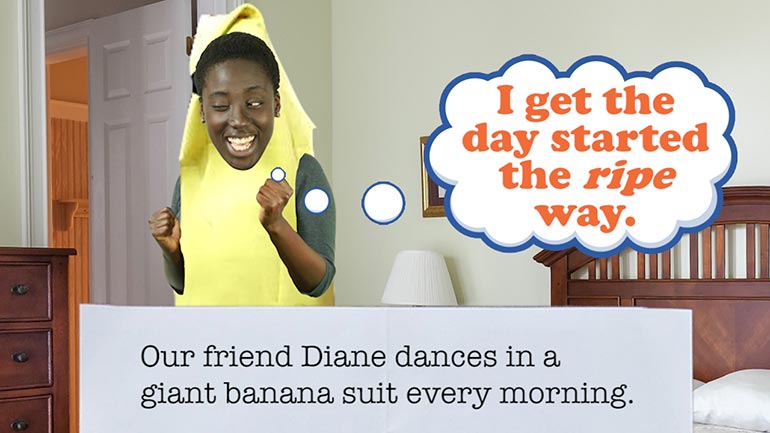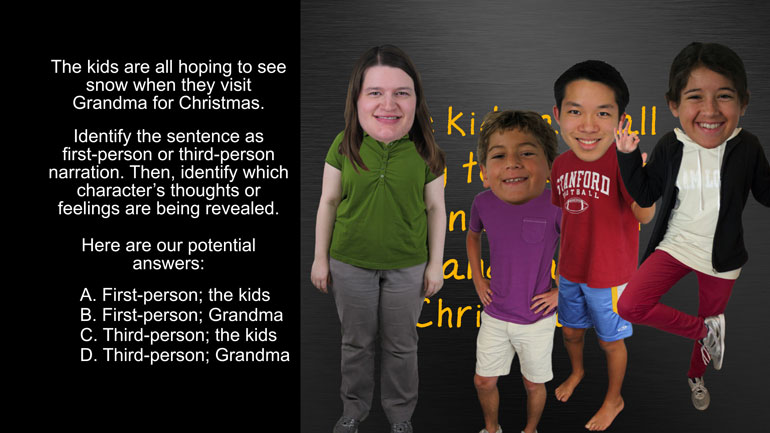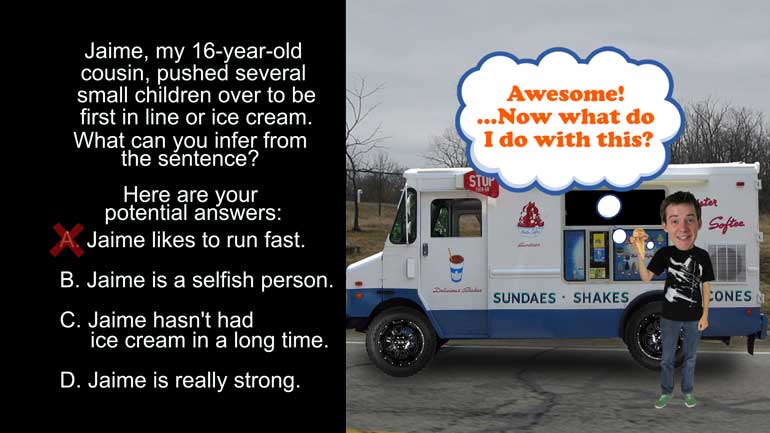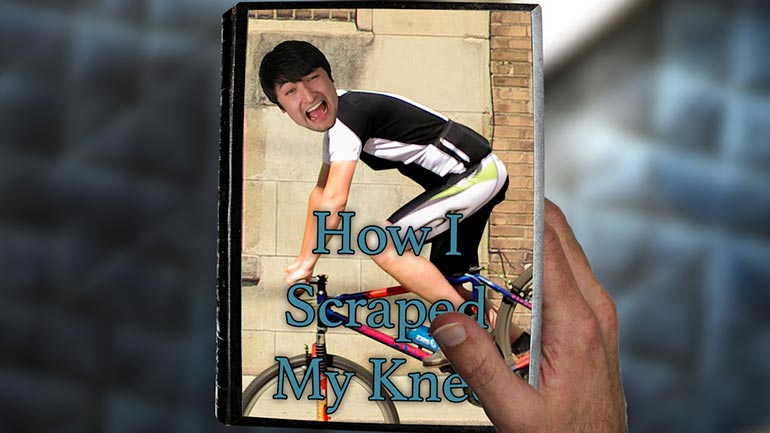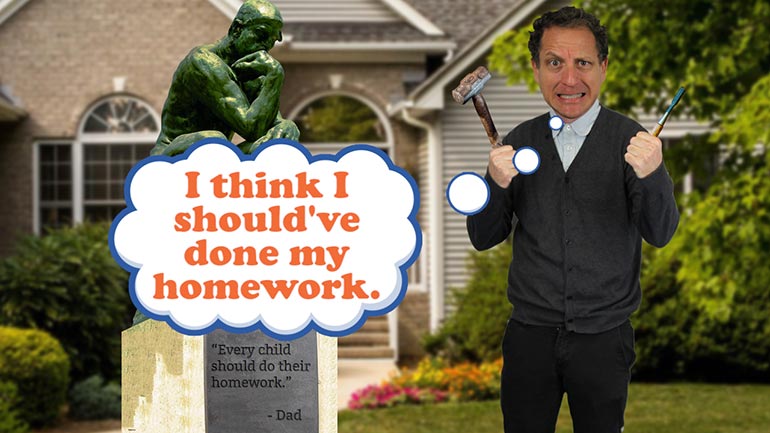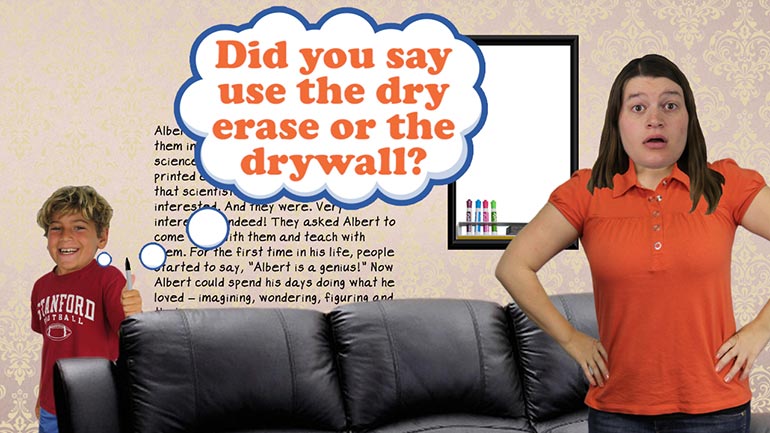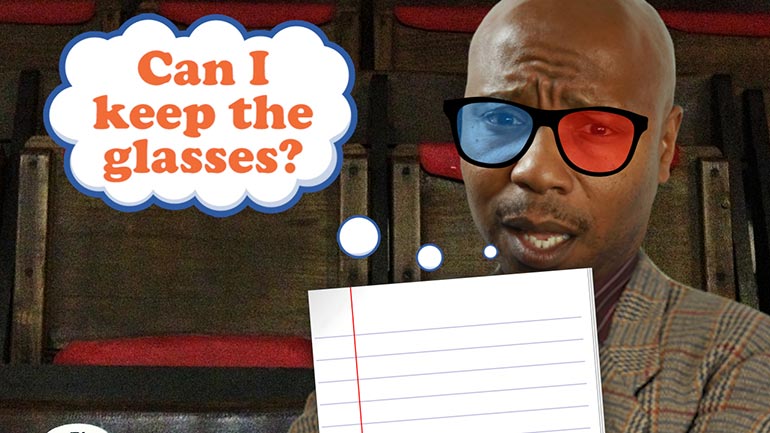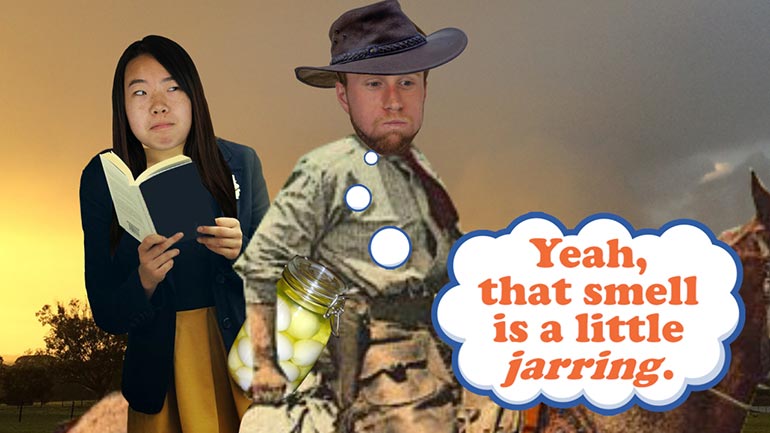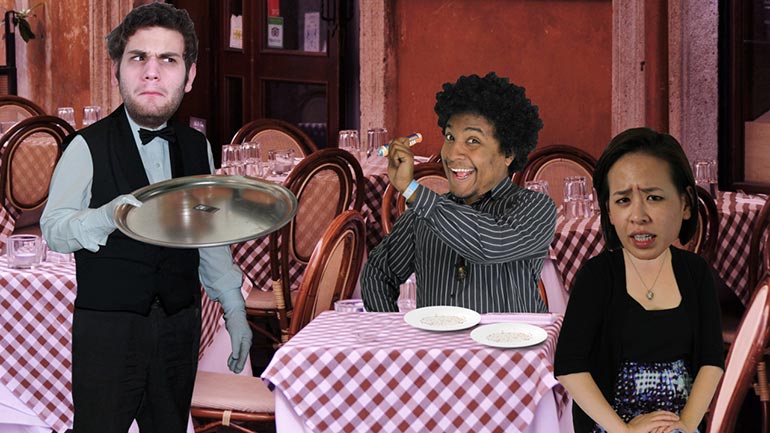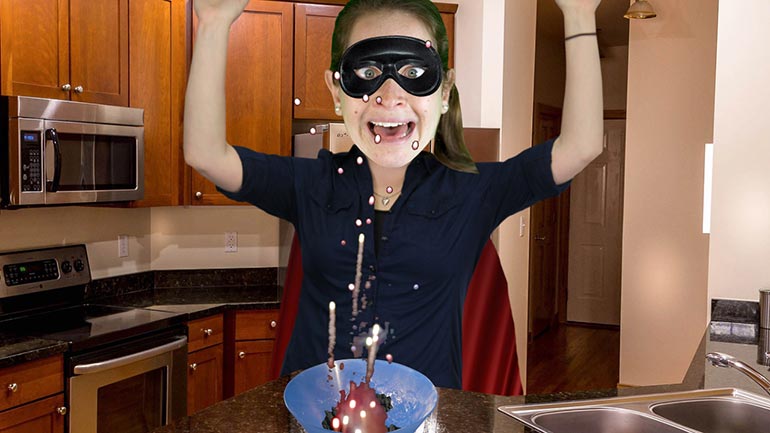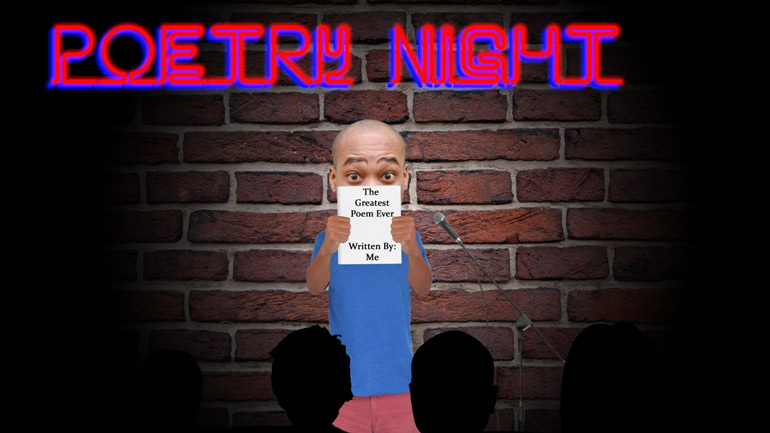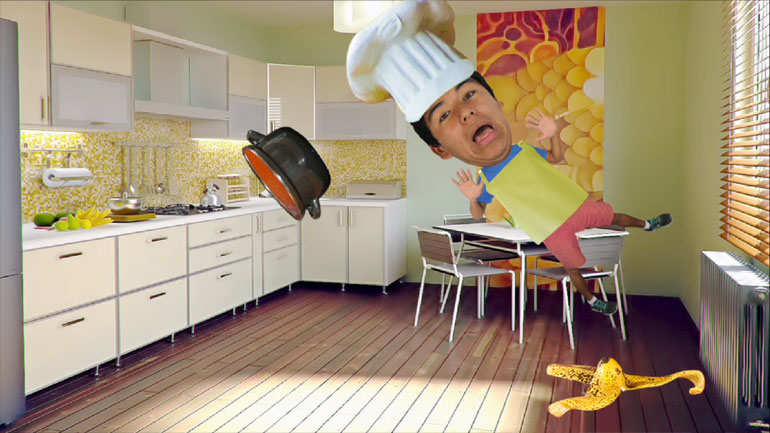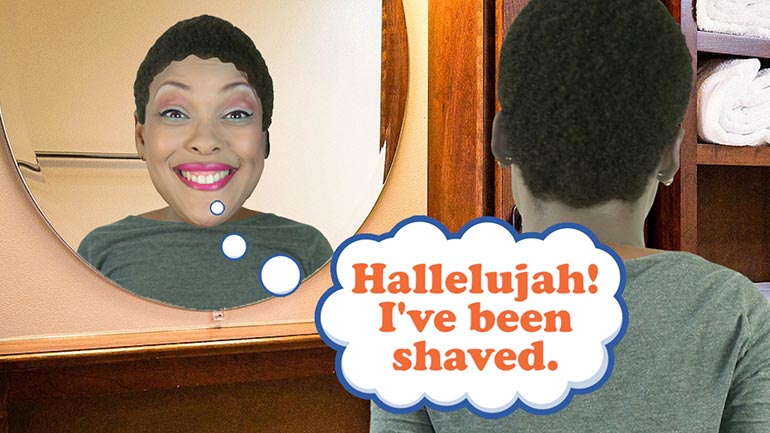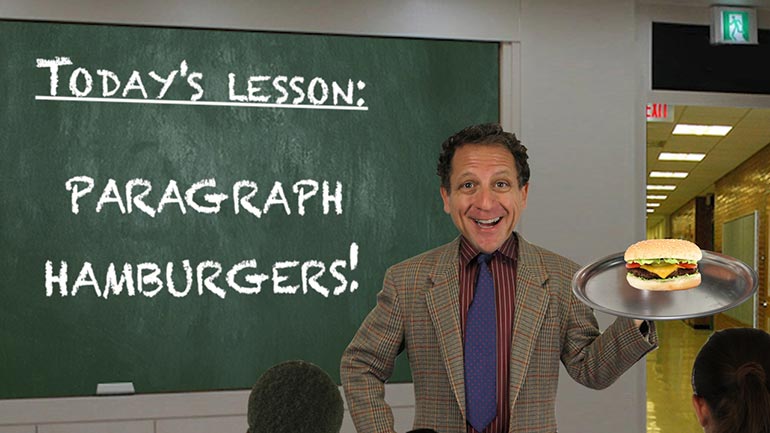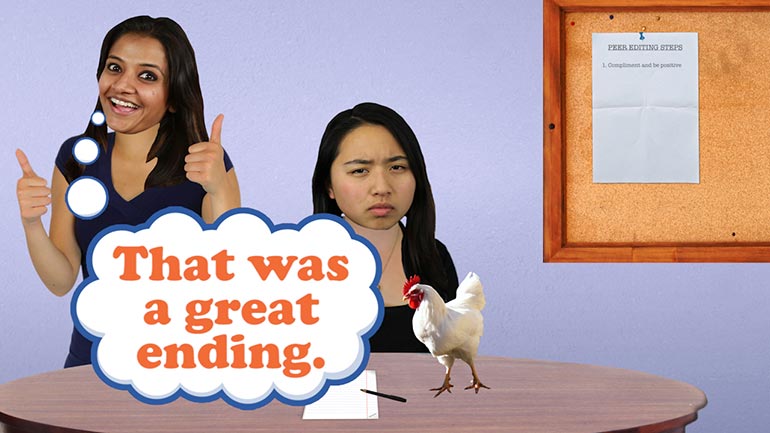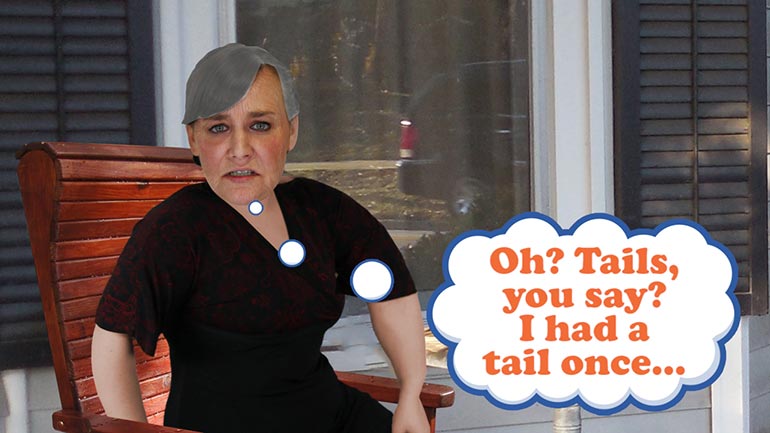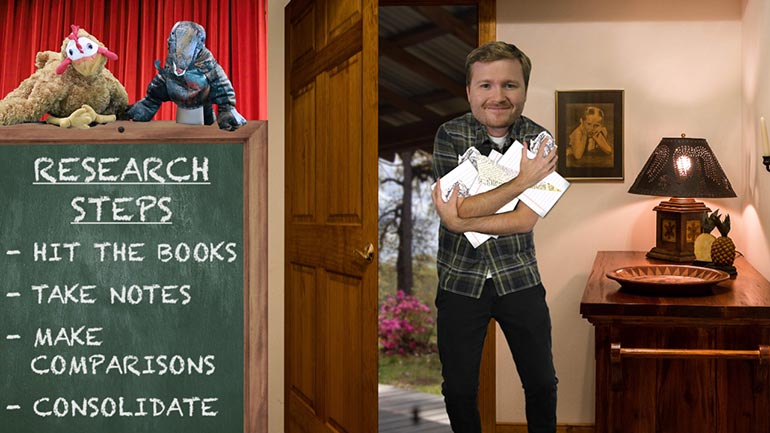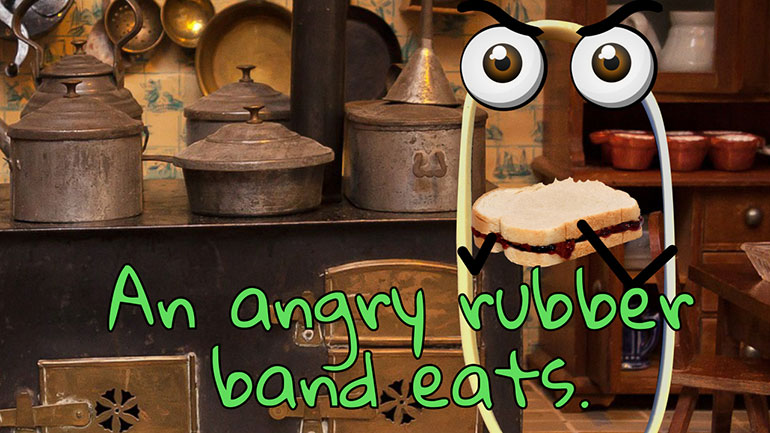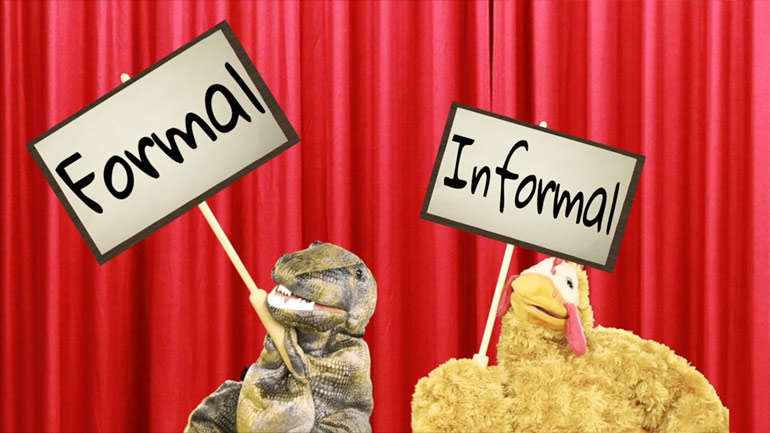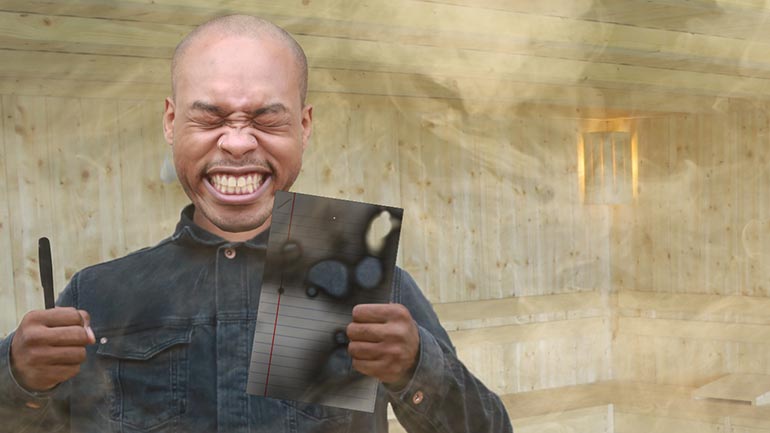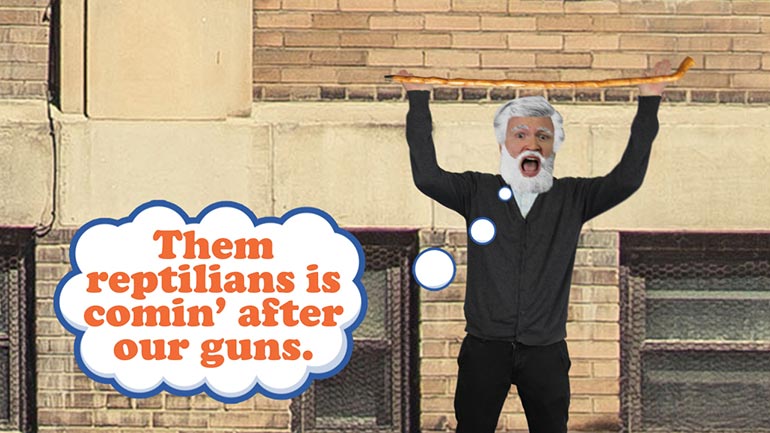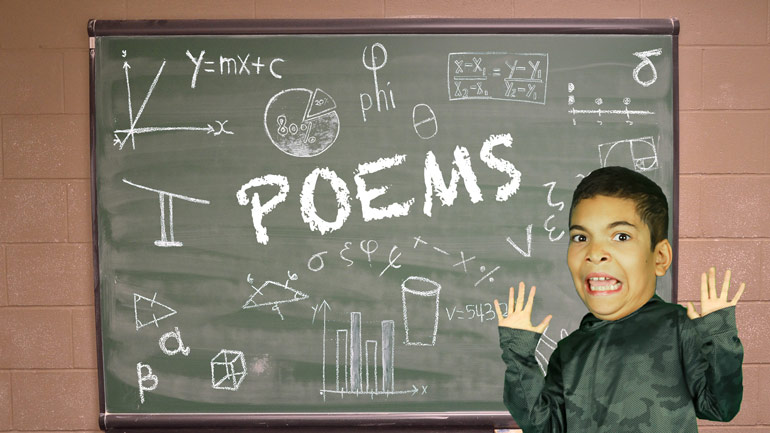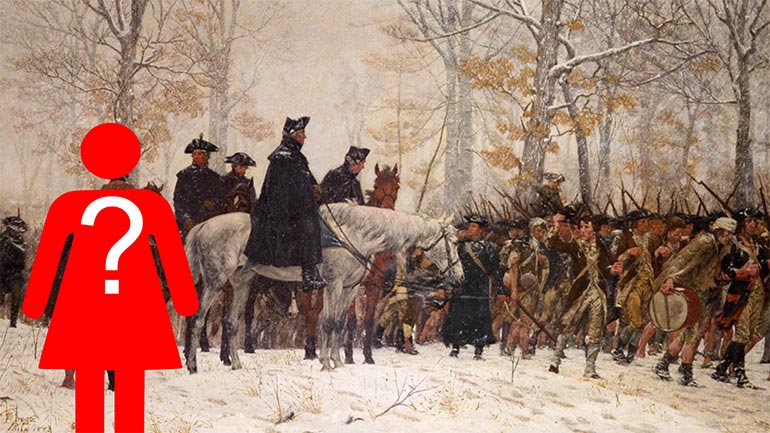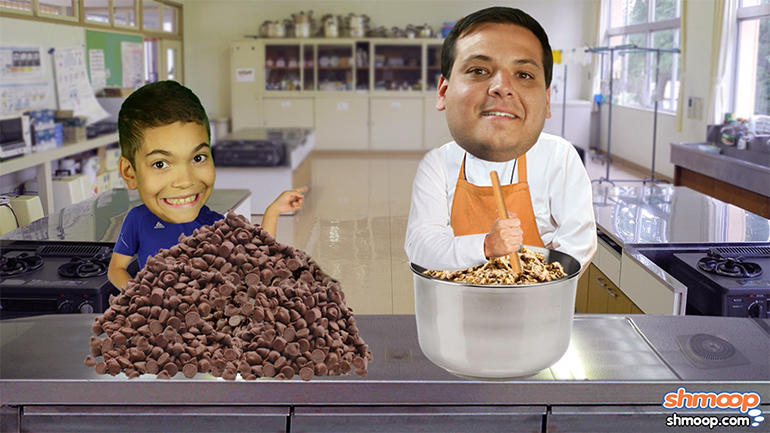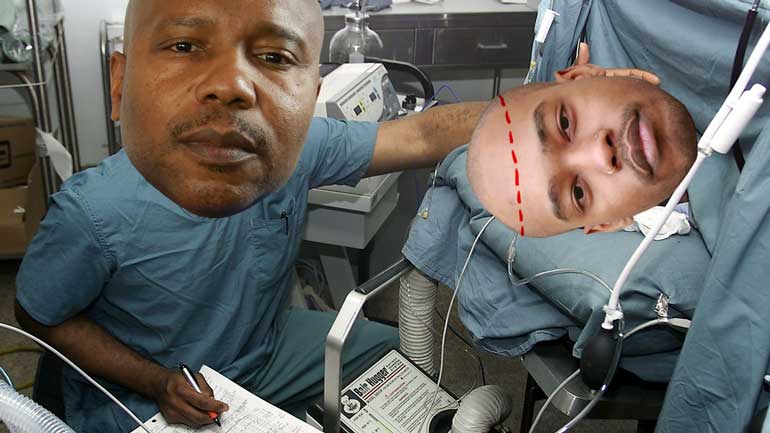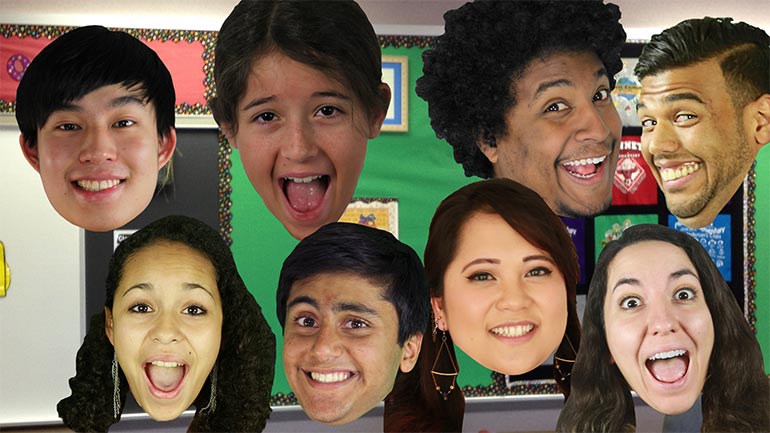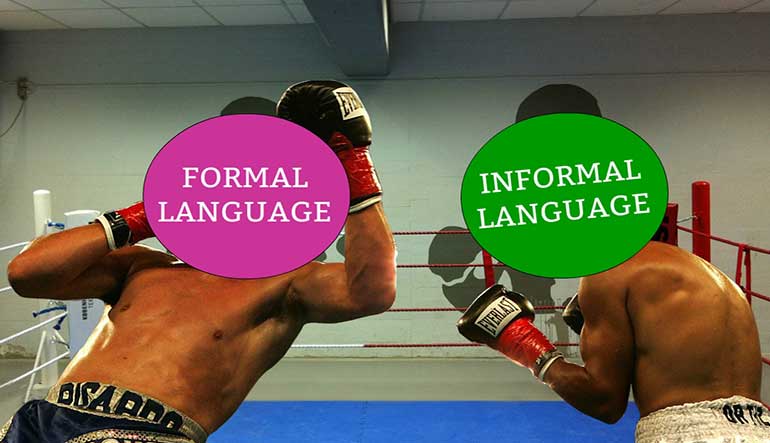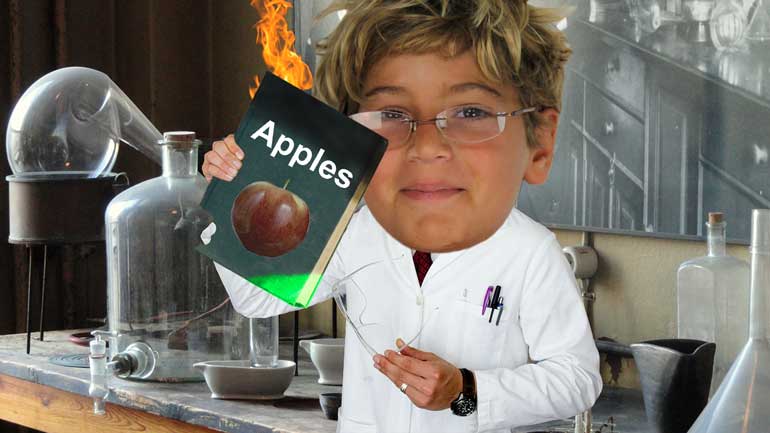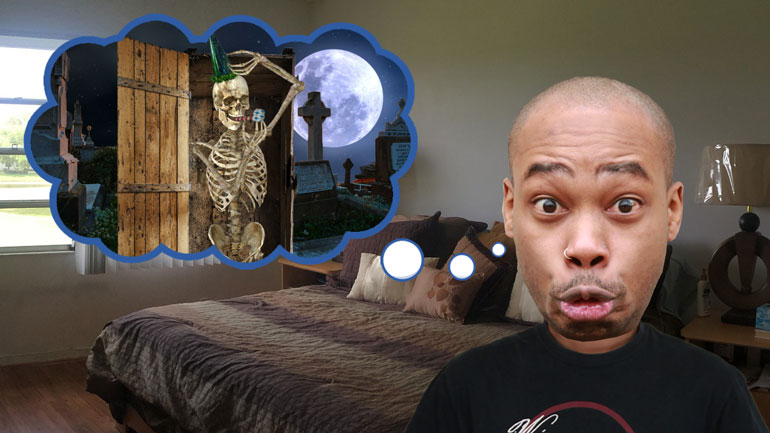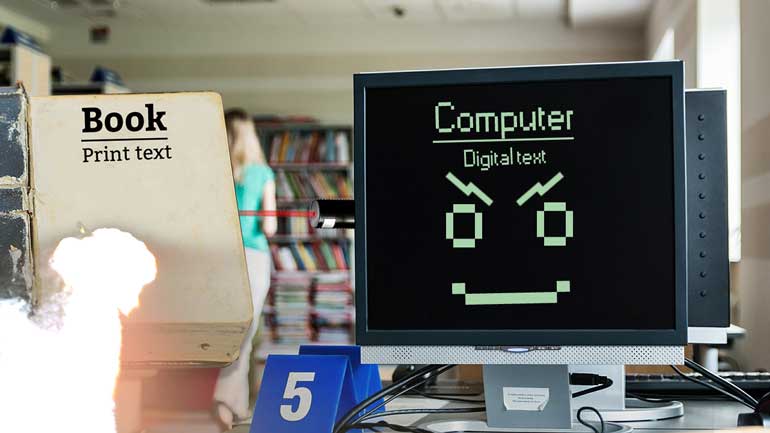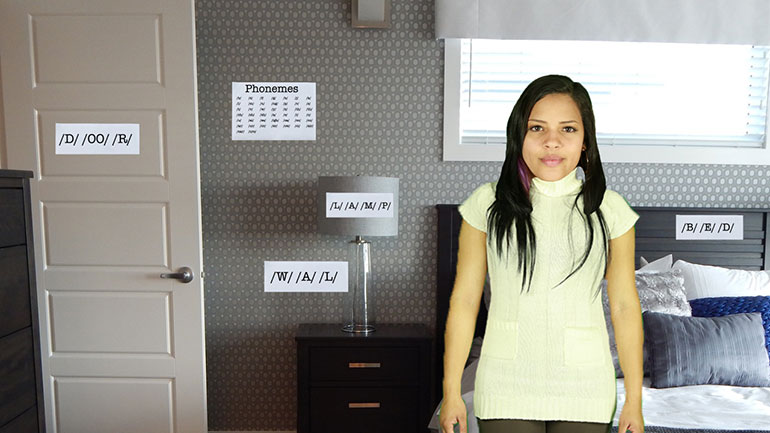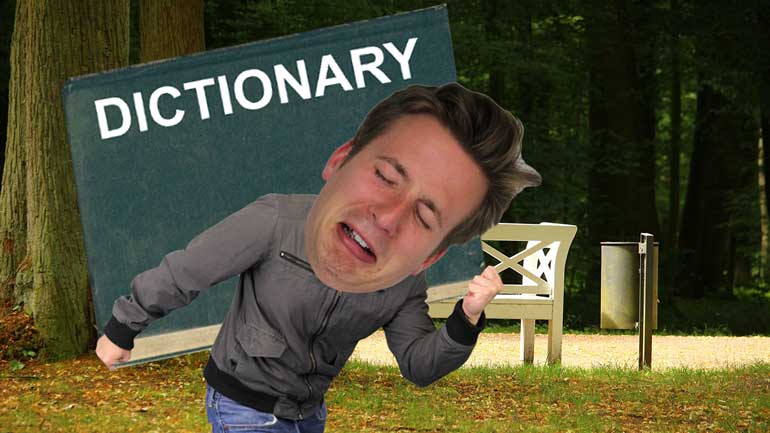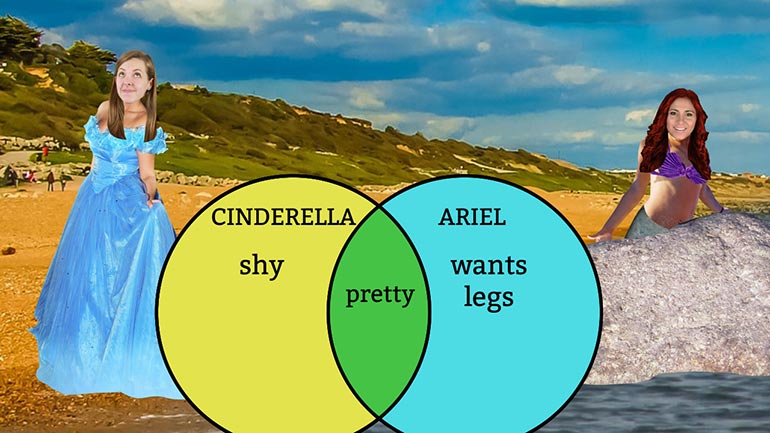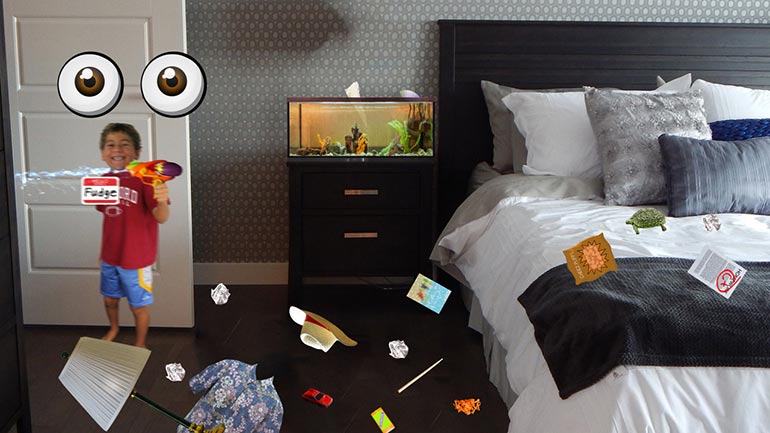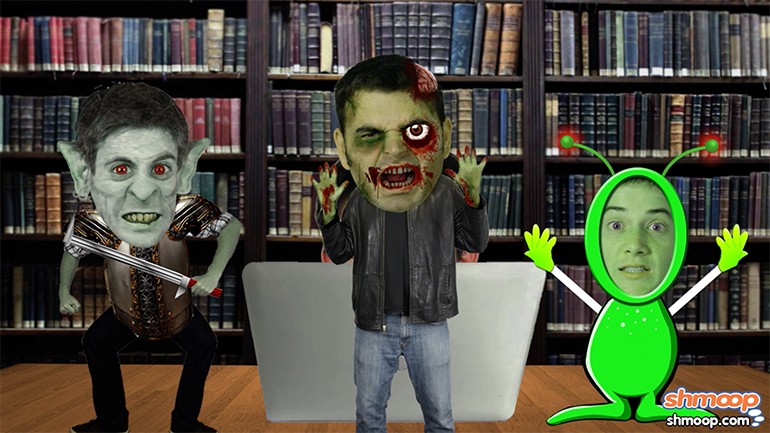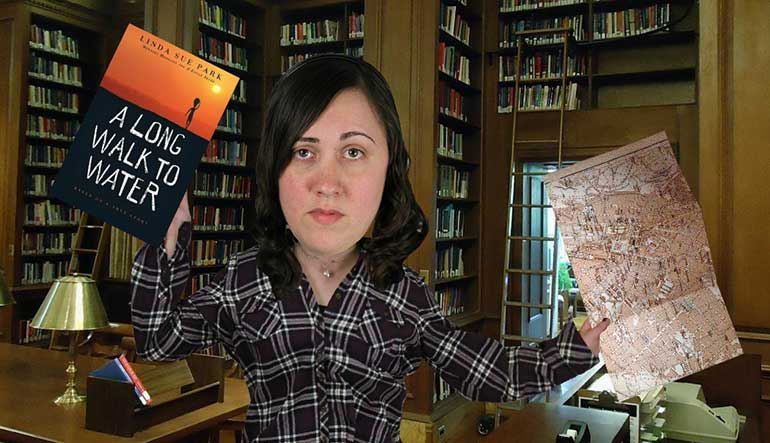ShmoopTube
Where Monty Python meets your 10th grade teacher.
Search Thousands of Shmoop Videos
Language Arts Videos 92 videos
In this lesson we'll subject you to some verbs and predicates. Each one is a necessary part of a complete breakfas—er...sentence.
ELA 4: Word Choice 222 Views
Share It!
Description:
Choosing words carefully is important. You may end up vexing the assemblage of citizens you're conversing with...or you might even just plain bore them.
Transcript
- 00:04
[Coop and Dino singing]
- 00:13
You might be familiar with the expression: "The right tool for the job." [Man fixing a bath tub]
- 00:17
Well, that doesn’t just apply to electricians and plumbers and all those guys whose butt
- 00:21
cracks are always showing.
- 00:22
It applies to you, too! Choosing the right word when you’re writing
Full Transcript
- 00:26
is important when it comes to conveying your intended meaning.
- 00:29
The amount of options you have is almost endless – seriously, have you seen how big dictionaries [Boy reading a dictionary]
- 00:33
are?
- 00:34
But a lot of the time, there will be one word that gets the job done better than the rest. [Hand writes sunny in the blank space of a sentence]
- 00:39
Unfortunately, you can't just go to your hardware store and buy a handy-dandy word kit to keep
- 00:43
in a drawer for when you need it. You'll need to find those words on your own by building [Man struggling to carry a word box]
- 00:47
up your vocabulary.
- 00:48
One great way to build up your vocabulary is by reading. The more you read, the more [Girl reading in the library]
- 00:53
likely it is that you'll bump up against new and exciting word that you might want to use
- 00:57
later.
- 00:57
And it’s fun! Seriously, reading a book is like petting a puppy on a roller coaster. [Boy with a puppy on a rollercoaster]
- 01:01
Well… slightly less dangerous. …And slightly less cute and fuzzy. But it's still fun.
- 01:06
And if you’re looking for some more intensive vocabulary expansion, the dictionary and the
- 01:10
thesaurus are always good bets. [Person types thesaurus into shmoogle webpage]
- 01:12
They even make paper copies of those in case your electricity ever goes out and you have
- 01:16
to live in the stone age…
- 01:20
Want an example? Well today's your lucky day,
- 01:21
we just happen to have one right here! [Example lands on girls head]
- 01:23
Say we're writing a story about a guy who's pretty angry all the time.
- 01:26
We’re thinking the word "angry" is a little bit vague. And, anyway, we have a very particular
- 01:31
kind of angriness in mind: not screaming-at-trees angry… [Boy screaming at a tree]
- 01:34
…but something a bit more subdued. So what do we do?
- 01:38
Since we're looking for a particular synonym for "angry," a thesaurus is our best bet.
- 01:42
We look up "angry," and see if any of those synonyms feel like the best fit. [Synonyms for angry in a thesaurus]
- 01:47
"Vexed" works pretty well, so let's go with that.
- 01:50
But hold on a minute – when choosing the right word, you also have to consider your
- 01:54
audience.
- 01:55
Communication is all about being understood, so if your word choice gets in the way of [Man sat in a doctors office]
- 01:59
that, something's going horribly wrong.
- 02:02
It's great that we figured out that the right word to describe our angry man was "vexed."
- 02:06
But if this story is really for young kids, we're getting a tiny bit ahead of ourselves for four year olds, [Young kids in an audience]
- 02:12
the word "vexed" might be too confusing for them, and we'd probably be better off just
- 02:16
calling the guy "angry."
- 02:17
It’d be a little bit crazy if we have to use a thesaurus to write our story and readers
- 02:21
would have to use a dictionary to read it. The more you read and the better you know [Boy reading a dictionary on the sofa]
- 02:24
your audience, the better you'll be at choosing the right tool for the job.
- 02:28
But, uh… pull your pants up a little while you're at it…let's leave the butt crack [Man's butt blurred while carrying word box]
- 02:31
look to the plumbers.
Related Videos
Sticks and stones, right? Well...only sometimes. It's a good idea to make sure your words aren't going to hurt others. Let's look at some ways to d...
Learn to debate like a champ. It's way better than debating like a chimp. That just takes mudslinging to a whole new level.
Today we'll learn about biographies and autobiographies. And no, the second one has nothing to do with the lives of cars.
In this lesson we'll subject you to some verbs and predicates. Each one is a necessary part of a complete breakfas—er...sentence.
ELA Drills, Beginner: Point of View 2. Identify what sort of narration is being used and which character's thoughts or feelings are being revealed.

